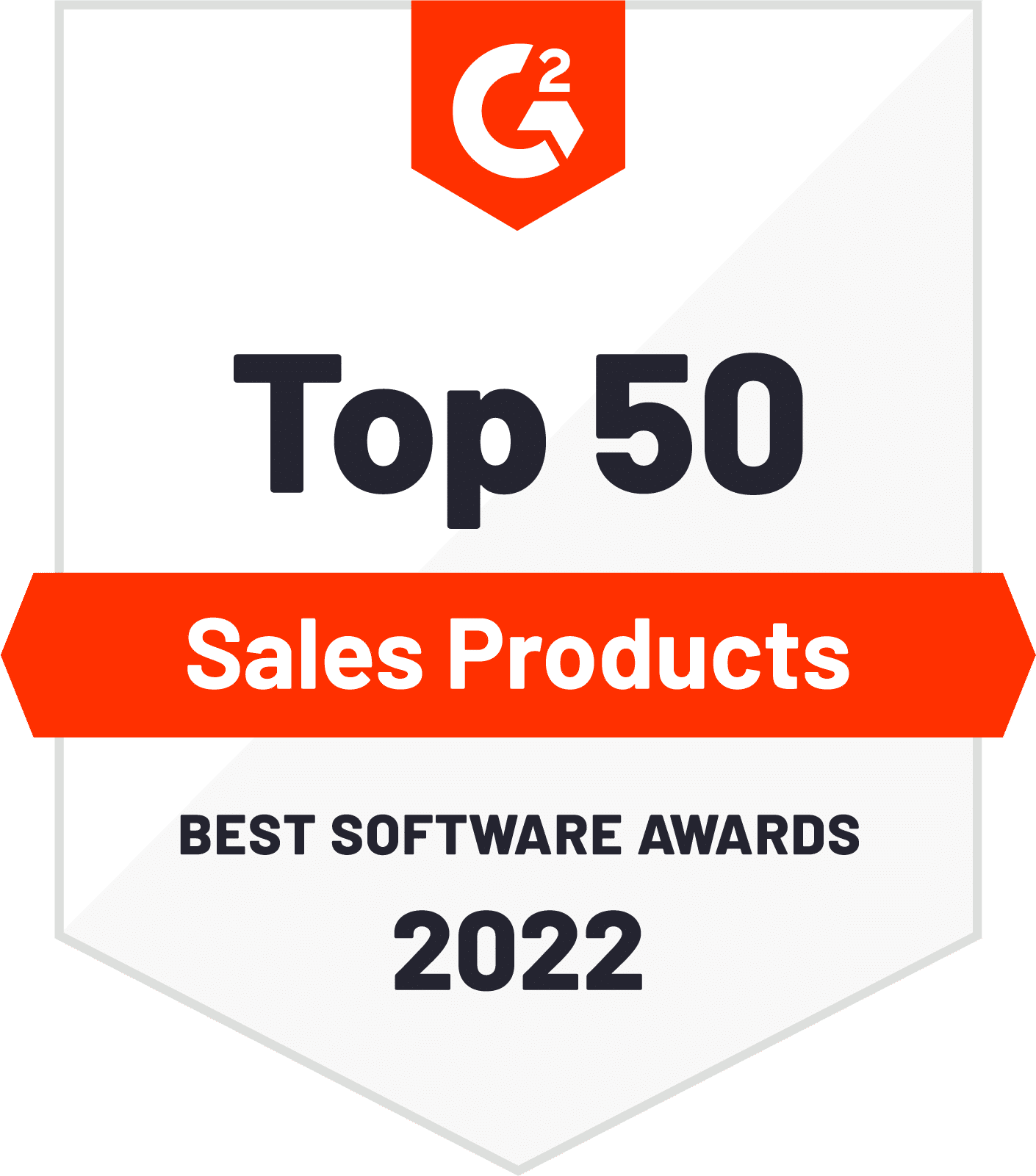
How to Get Into Medical Device Sales (Key Strategies for Success)
Dreaming of a rewarding and challenging career in medical device sales? You should be! The medical device industry is poised to reach nearly $800 billion in global annual sales by 2030. If you’re looking to cut yourself a piece of that pie, then you’re in for an exciting journey! In this guide, we’ll explore the ins and outs of becoming a medical
















Wondering how to leave a lasting impression on your customers? Field marketing might be the answer. Through in-person experiences, product demos, and localized events, field marketing capabilities create authentic connections that resonate beyond traditional advertising reach. This guide cuts through the jargon, outlining how field marketing works, why it’s critical for your brand, and the steps to deploy these strategies effectively.
Grab a warm coffee ☕️ or tea 🍵 and let’s get started!
Key Takeaways
Field marketing is an immersive strategy focused on in-person experiences to enhance brand visibility and influence purchasing decisions, using personalized interactions and localized campaigns to resonate with specific audiences.
Essential elements of field marketing include product sampling, in-person events, and guerrilla marketing tactics that create memorable interactions and directly engage customers to build strong brand loyalty and boost sales.
Developing a successful field marketing strategy involves aligning with sales and marketing goals, deeply understanding the target audience, and continuously measuring and optimizing campaign performance for improved ROI.
Download Now: The Strategic Seven
How are today's sales leaders integrating field marketing activity with field sales? Learn it all by reading our popular 7 Strategic Secrets to Sales Success!
Get Your Free EbookUnderstanding Field Marketing
Field marketing, at its core, is an immersive marketing strategy that thrives on direct, in-person interactions with consumers. It caters to the human desire for tangible experiences, providing a pathway for customers to discover new products, establish strong relationships with brands, and ultimately, influence their purchasing decisions. From event marketing and public relations to customized content and relationship building, field marketing employs a plethora of strategies to drive sales and enhance brand visibility.
Naturally, field marketing operates within a wider marketing ecosystem. To grasp its full potential, we should explore its differences from traditional marketing approaches.
The Role of Field Marketing
Field marketing distinguishes itself from other strategies through its dedication to crafting unforgettable experiences for customers, often referred to as experiential marketing. By delivering personalized and significant interactions through events, product demonstrations, and promotions, field marketing contributes to crafting experiences that resonate with consumers and stick in their memories.
Additionally, field marketing:
Field Marketing vs. Traditional Marketing
While traditional marketing campaigns utilize mass media to reach a broad audience, field marketing efforts put the emphasis on direct interaction with consumers through direct sales. It brings the brand to life in physical venues such as retail outlets and events, building a personal rapport that fosters brand loyalty.
Localized strategies are central to field marketing, allowing it to resonate with specific communities and regions. Some examples of localized strategies in field marketing include:
Field marketing exhibits a granular understanding of its audience, something often missing in traditional marketing campaigns. As a field marketing organization, it is crucial to maintain this focus on the target audience.
However, traditional marketing’s broader campaigns offer their own advantages, like enhancing credibility and extending audience reach, albeit at a higher cost.
Essential Components of Field Marketing Campaigns
Now that we’ve defined field marketing and compared it to traditional marketing, we can examine the fundamental components that drive field marketing campaigns. From product sampling and demonstrations to in-person events and street promotions, each component plays a pivotal role in engaging and attracting potential customers.
Product Sampling & Demonstrations
Product sampling and demonstrations remain reliable strategies in a field marketer’s arsenal. They provide customers a firsthand experience with the product, fostering familiarity, generating feedback, and increasing brand awareness. The ability to try before you buy not only provides immediate value to customers but also leaves a long-lasting impact on sales.
In addition to immediate perks, product sampling and demonstrations may strengthen brand loyalty. By offering customers the opportunity to experience new products, attracting new customers, and encouraging impulse purchases, these tactics foster a robust brand-consumer relationship that extends far beyond the initial interaction. However, successful execution of product sampling and demonstrations requires investment, with costs associated with the creation, distribution, and supervision of sample products.
In-Person Events & Experiences
In-person events function as a fundamental element of field marketing. They allow for:
In-person experiences profoundly influence how a brand is perceived. They create positive brand impressions, enhance the overall customer experience, support the sales team, and gather accurate market data. These experiences play a crucial role in establishing brand presence, building meaningful customer connections, and generating new leads, all of which are essential for a lasting brand impact.
Street Promotions & Guerilla Marketing
Street promotions and guerrilla marketing strategies aim to create a significant impact. They capture attention in unconventional ways, pushing the boundaries of traditional advertising to create buzz and excitement around a brand. Street promotion targets desired audiences in areas with high foot traffic, offering incentives like free samples, flyers, and coupons to foster direct engagement.
Similarly, guerrilla marketing uses unconventional methods to generate publicity and increase brand recognition. It’s incorporated into field marketing campaigns through innovative tactics designed to attract attention and establish lasting impressions on the intended audience. Despite the potential challenges in measuring effectiveness, these unconventional marketing strategies can offer a significant return on investment by effectively targeting the desired audience and fostering direct engagement.
Building a High-Performing Field Marketing Team
Now that we have examined the key components of field marketing campaigns, we can shift our attention to the individuals implementing these campaigns. A successful field marketing team is a well-oiled machine, with each member playing a crucial role in executing campaigns and building brand presence.
Field Marketing Manager
The field marketing manager orchestrates this ensemble. They are responsible for:
Managing a team is a considerable undertaking. Field marketing managers handle administrative tasks and provide regional marketing support for sales teams. They are the linchpin that holds the team together, ensuring that everyone is working towards the same goal. And of course, they play a crucial role in:
Field Marketing Representatives
Field marketing representatives have several key responsibilities, including:
However, to effectively engage with customers and drive sales, field marketing representatives need a specific set of skills and qualifications. These include:
They also need to receive comprehensive training to hone their skills and enhance their effectiveness in the field.
Brand Ambassadors & Influencers
Lastly, brand ambassadors and influencers should not be overlooked. These individuals help promote the brand through their personal networks and social media platforms. They uphold the brand’s principles and contribute to social media presence, share authentic experiences, create compelling content, and bring advantages to businesses in various sectors.
Selecting the right brand ambassadors and influencers is essential. They should embody the brand’s values and personality and have a robust and engaged online presence. Once onboard, they promote the brand’s products or services through various social media channels or live engagements, further bolstering the reach and effectiveness of the field marketing campaign.
Developing an Effective Field Marketing Strategy
With the basics of field marketing and its key players covered, we can explore the development of an effective field marketing strategy. This involves aligning with sales and marketing goals, understanding the target audience, and continuously measuring and optimizing campaign performance.
Aligning with Sales & Marketing Goals
Harmonizing field marketing initiatives with overarching sales and marketing goals guarantees a unified and influential strategy. Field marketing managers are responsible for:
Integrating field marketing into broader sales and marketing strategies requires:
It’s about creating a unified message and working towards common objectives.
Knowing Your Target Audience
Understanding your target audience is of utmost importance in field marketing. It enables field marketers to tailor their strategies and messaging for maximum effectiveness. By analyzing factors such as age, location, and preferences, marketers can create a shared framework of goals and strategies, aligning on buyer personas and establishing shared goals and objectives.
Techniques for segmenting the target audience in field marketing include:
By understanding the target audience, marketers can customize events, merchandising, sampling, and demonstrations to the needs and interests of potential customers, enhancing relationship building and lead generation effectiveness.
Measuring & Optimizing Campaign Performance
Frequent evaluation and enhancement of campaign performance are vital for ongoing improvement and augmented ROI. Field marketing managers assess campaign performance by collecting data and analyzing key performance indicators such as Customer Acquisition Cost (CAC), Lifetime Value of a Customer (LTV), Return on Investment (ROI), and Return on Ad Spend (ROAS).
Beyond measuring performance, optimizing field marketing campaigns is all about making adjustments to enhance the efficacy of marketing efforts. This can be done by:
Field Marketing in a Digital Age
As the digital age progresses, field marketing consistently adapts. It now incorporates digital marketing strategies and virtual events, creating a more comprehensive and integrated approach that harnesses the power of both online and offline marketing tactics.
Integrating Digital Marketing Strategies
Merging digital marketing strategies with field marketing initiatives allows marketers to broaden their reach, refine targeting, and boost overall impact. Digital marketing strategies complement offline activities, reinforcing brand image, and utilizing digital tools and channels like QR codes, NFC tags, and social media.
Digital marketing strategies enhance targeting in field marketing by enabling businesses to effectively reach and engage their intended audience through methods such as search engine optimization, social media marketing, email marketing, and pay-per-click advertising. By integrating digital marketing in field marketing strategies, businesses can provide direction, enhance market share understanding, develop effective value propositions, and enable campaign performance tracking.
Virtual Events & Experiences
Virtual events and experiences present an economical and readily accessible substitute to conventional in-person events. They have significantly influenced the field marketing landscape by providing an improved return on investment (ROI) due to the capacity to engage extensive, far-reaching audiences.
Hosting successful virtual events and experiences in field marketing requires:
By offering a digital alternative to traditional in-person events, field marketing can reach a larger audience, increase engagement, and maximize ROI.
Field Marketing & Field Sales
In the dynamic world of business, the interplay between Field Marketing and Field Sales forms the backbone of any successful marketing and sales strategy. While each function has its unique set of roles and responsibilities, their collaboration is crucial for achieving overarching business goals.
Differences between Field Marketing and Field Sales
Engagement Focus
Field Marketing plays a pivotal role in creating brand awareness, educating the market, and establishing a solid brand presence. It’s about engaging with potential customers through interactive campaigns and face-to-face interactions, aiming to leave a lasting impression.
In contrast, Field Sales is the direct force in the field, focusing on one-on-one interactions, understanding the unique needs of each customer, and ultimately, closing deals. This direct approach is all about fostering personal relationships and trust, leading to successful conversions.
Tactical Approach:
Field Marketing takes a strategic stance, casting a wide net to create broad market interest, generate leads, and set the stage for sales success. The approach is about building a conducive environment where sales can flourish.
Meanwhile, Field Sales embodies a more tactical nature, seizing the opportunities presented by Field Marketing, personalizing the sales approach based on direct interactions, and driving those crucial conversions.
Performance Metrics:
Key Performance Indicators (KPIs) for Field Marketing often revolve around brand awareness, customer engagement levels, and lead generation rates, reflecting the broad and engaging nature of the role. On the flip side, Field Sales focuses on metrics like sales conversion rates, average deal size, and customer acquisition costs, showcasing its direct impact on the company’s bottom line.
Synergies between Field Marketing and Field Sales
Lead Handover Efficiency:
Effective Field Marketing campaigns are a goldmine of qualified leads for the Field Sales team. This seamless handover allows sales representatives to play to their strengths—closing deals and building customer relationships—without getting bogged down in lead generation.
Market Feedback Loop:
Insights and feedback from Field Sales are invaluable. This real-time data from the ground can significantly refine Field Marketing strategies and tactics. By ensuring that campaigns are closely aligned with customer expectations and market realities, both teams can operate more effectively and cohesively.
Unified Customer Journey:
When Field Marketing and Field Sales efforts are seamlessly integrated, it results in a cohesive customer journey. This unity ensures that the brand message remains consistent throughout the customer’s experience, from the initial engagement to the final sale, effectively nurturing potential customers along the sales funnel.
Benefits of Collaboration between Field Marketing and Field Sales
Enhanced Customer Acquisition:
A coordinated approach between Field Marketing and Field Sales can significantly streamline the customer acquisition process. The interest and leads generated by marketing efforts are swiftly and effectively captured by the sales team, leading to a smoother, more efficient path to conversion.
Optimized Resource Allocation:
Collaboration ensures that marketing resources—such as campaign materials and promotional items—and sales efforts—including customer meetings and follow-ups—are in perfect harmony. This strategic alignment leads to optimized spending and resource utilization, ensuring that every dollar spent contributes directly to business growth.
Increased Sales Effectiveness:
When Field Sales receives robust support from Field Marketing, the impact on sales effectiveness is profound. This backing allows for more meaningful conversations with prospects, better alignment with customer needs, and ultimately, higher conversion rates and increased revenue.
Final Thoughts
In conclusion, field marketing is a potent tool in a marketer’s arsenal. By blending physical touchpoints with digital experiences, it creates a unique customer journey that resonates on a personal level. From understanding your target audience and aligning with sales and marketing goals to measuring and optimizing campaign performance, the key to a successful field marketing campaign lies in a strategic and integrated approach.
Frequently Asked Questions
What is the difference between channel marketing and field marketing?
The difference between channel marketing and field marketing is that channel marketing involves selling products through partners, such as retail stores, while field marketing relies on the company’s own marketers to demonstrate product features directly to consumers.
What is field marketing in b2b?
Field marketing in b2b focuses on creating personal connections and utilizing experiential marketing to generate interest in a company’s offerings.
What is the difference between field marketing and experiential marketing?
The key difference between field marketing and experiential marketing is that while field marketing focuses on making consumers like your brand and try your product, experiential marketing aims to compel consumers to fall in love with your brand, leading to a higher lifetime customer value.
Is field marketing worth it?
Yes, field marketing is worth it because field marketers are highly trained to match the needs of the target audience and create stronger customer relationships, leading to increased profits and brand awareness.
What is the role of a field marketing manager?
The role of a field marketing manager involves overseeing strategy development, coordinating the team, and evaluating performance to ensure the effective functioning of the marketing department. They also formulate and implement regional demand generation strategies aligned with sales objectives.